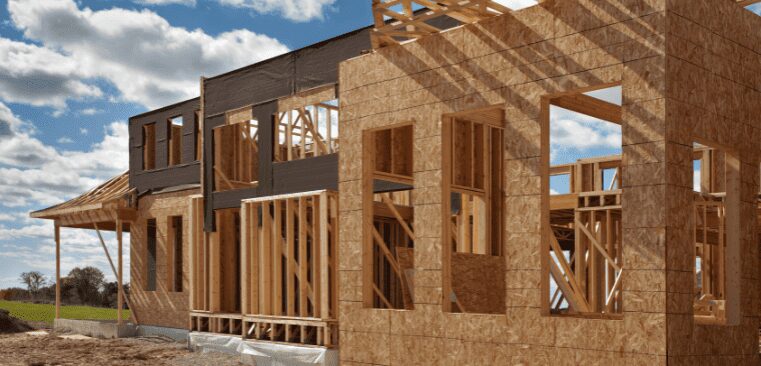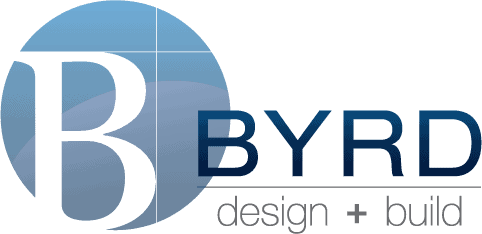When it comes to building or buying a new home, two primary options emerge: Spec homes and Custom homes. Understanding the difference between these two choices is essential for potential homeowners.
The decision between a Spec home and a Custom home depends on various factors such as budget, timeline, personal preferences, and the level of involvement desired in the design and construction process. Whether you’re relocating due to a job offer, need more space for a growing family, or have specific design ideas in mind, understanding these two options will guide you in making the best choice for your unique situation.

What Is A Custom Home?
A Custom Home is a unique creation tailored to the specific desires and needs of the client. Unlike pre-designed homes, a custom home offers complete control over every aspect of the design and construction. From the floor plan to the choice of materials, homeowners work closely with architects and builders to bring their vision to life. This process ensures that the final product reflects the individual’s lifestyle, taste, and preferences. However, building a custom home requires significant time, effort, and often a higher budget.
What Is A Spec Home?
A Spec Home, short for “speculative home,” is a pre-designed property built by a developer or builder. These homes are constructed with a general market audience in mind, and the builder determines all aspects of the design and features. The advantage of a Spec Home is the quicker move-in time, as the property is either ready or near completion. While this option offers less personalization, it often appeals to those who need a home quickly or prefer not to be involved in the design process.
Pros & Cons of Building a Spec Home
Choosing a Spec Home, short for “speculative home,” offers a unique set of advantages and challenges. These pre-designed properties are constructed with a general market audience in mind, and understanding the pros and cons can guide potential homeowners in making an informed decision.
Pros:
- Quick Move-In: Spec homes are often ready or near completion, offering immediate occupancy for those in a hurry.
- Less Decision-Making: With most design choices predetermined, buyers don’t have to stress over every detail, making the process more straightforward.
- Potential Cost Negotiation: Depending on the market and builder’s situation, there may be room to negotiate the sale price.
- New Construction: Spec homes are newly built, often including modern features and complying with current building codes.
- Warranty: Many builders offer warranties on their spec homes, providing peace of mind for the buyer.
Cons:
- Limited Customization: Choices regarding floor plans, appliances, and features are usually fixed, limiting personalization.
- Generic Design: The design may lack personal touches, as it’s meant to appeal to a broad audience, which might not align with individual tastes.
- Potential Quality Concerns: Builders may choose materials and finishes based on cost rather than quality, potentially affecting long-term satisfaction.
- Resale Value: If the design doesn’t resonate with future buyers, it might impact the home’s resale value.
- Less Emotional Connection: Since the buyer doesn’t participate in the design process, there may be a reduced sense of attachment to the home.
The decision to opt for a Spec Home depends on individual needs, preferences, timeline, and budget. While the quick move-in time and reduced decision-making can be appealing, potential homeowners must weigh these benefits against the limitations in customization and potential quality concerns.
Working with a reputable builder, asking the right questions, and carefully inspecting the property can mitigate some of the challenges and enhance the rewards of choosing a Spec Home.
Pros & Cons of Building a Custom Home
Building a Custom Home offers a unique opportunity to create a living space tailored to individual preferences and needs. However, this process comes with both advantages and challenges.
Pros:
- Personalization: Every aspect of the home can be tailored to the client’s preferences, from the layout to the doorknobs.
- Quality Control: Clients can choose high-quality materials and finishes, ensuring long-lasting durability and aesthetics.
- Unique Design: The home can be a one-of-a-kind creation, reflecting the owner’s personality and lifestyle.
- Long-Term Satisfaction: A home designed to specific needs and tastes can provide lasting enjoyment and comfort.
- Energy Efficiency: Custom homes can be designed with energy-efficient features, potentially saving on utility bills.
Cons:
- Higher Cost: Custom homes often require a larger budget due to personalized design and high-quality materials.
- Longer Construction Time: The design and construction process can be time-consuming, sometimes taking years to complete.
- Potential Stress: The multitude of decisions and active involvement needed can be overwhelming for some clients.
- Resale Considerations: Highly personalized designs might not appeal to a broad market, potentially affecting resale value.
- Risk of Overbuilding: Without careful planning, it’s possible to overbuild for the neighborhood, leading to challenges in recouping the investment.
The decision to build a custom home is a significant one, requiring careful consideration of these pros and cons. While the opportunity to create a dream home is alluring, it’s essential to understand the potential challenges and be prepared for the process. Working with experienced professionals, setting a realistic budget, and maintaining clear communication can mitigate some of the risks and enhance the rewards of building a custom home.


Cost Considerations
The cost of building a home, whether custom or spec, involves various factors:
- Size and Complexity: Larger and more complex designs will generally cost more.
- Materials and Features: High-quality materials and luxury features add to the cost.
- Location: Land and labor costs can vary by region.
- Builder’s Reputation: Established builders may charge more for their expertise.
Understanding these factors helps in budgeting and avoiding unexpected expenses.
Semi-Custom or Spec Options
Semi-Custom homes offer a middle ground between fully custom and spec homes, providing a blend of personalization and efficiency. This option is becoming increasingly popular as it allows clients to enjoy some of the benefits of customization without the full cost and time commitment. Here’s what potential homeowners need to know:
- Pre-Designed Plans: Semi-Custom homes start with a pre-designed floor plan chosen from the builder’s portfolio. Clients can then make specific changes to suit their preferences.
- Customizable Features: While the overall structure remains fixed, clients can personalize aspects like paint colors, flooring, countertops, and appliances. Some builders may even allow minor structural changes, such as adding a fireplace or moving non-load-bearing walls.
- Cost-Effective: By starting with a pre-designed plan, costs may be lower than a fully custom home. Clients can choose where to invest in upgrades and where to save.
- Time-Efficient: The design process is often quicker than a fully custom home, as the foundational plan is already in place. This can shorten the overall construction timeline.
- Quality Considerations: Depending on the builder, the quality of materials and finishes may vary. It’s essential to understand what’s included in the base price and what constitutes an upgrade.
- Resale Value: A semi-custom home may offer better resale value than a highly personalized custom home, as it balances unique features with broader appeal.
- Builder Relationship: Working closely with a reputable builder who understands the client’s vision is crucial. Clear communication about what can and cannot be customized will prevent misunderstandings and ensure satisfaction.
- Warranty and Support: Many builders offer warranties and post-construction support for semi-custom homes, similar to spec homes.
Semi-Custom homes provide a flexible option for those who desire some level of personalization without the full investment in a custom-designed home. Understanding the extent of customization allowed, the quality of materials, and the builder’s reputation will guide potential homeowners in making an informed decision that aligns with their needs, budget, and lifestyle.
Conclusion
Choosing between a Custom Home, Spec Home, or even a Semi-Custom option depends on individual needs, budget, timeline, and personal preferences. By understanding the pros and cons of each option, potential homeowners can make an informed decision that aligns with their unique situation and long-term goals.
Whether you’re drawn to the complete personalization of a custom home, the efficiency of a spec home, or the balanced approach of a semi-custom home, our team at Byrddb is here to guide you every step of the way. Explore our portfolio, learn more about our building process, and discover how we can turn your dream home into a reality.
